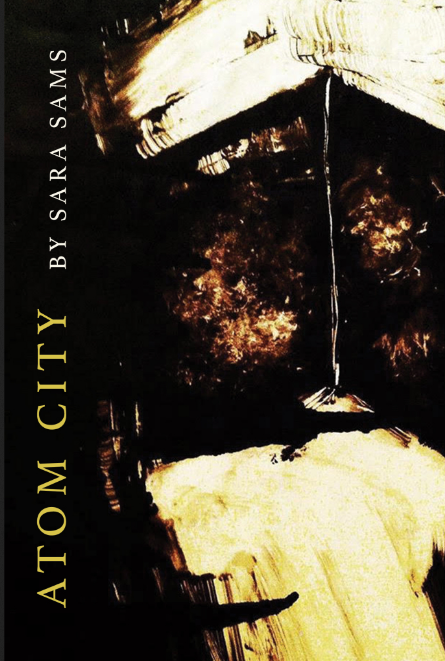 Years ago the catchphrase “What Would Jesus Do?” became popular, abbreviated to WWJD, and I have to confess I was always a bit leery of this mantra as a guide for life, considering that Jesus, albeit an admirable fellow, came to the kind of untimely demise that we would all rather avoid. I think my attitude to the WWJD phenomenon was also colored by how the Christian conservatives in my neck of the woods (a Colorado mountain town) seem inordinately fond of firearms. There’s a Christian resort above my home on Hermit Mountain, and more often than not what you hear from that direction—instead of the lovely sound of choirs singing angelic hymns—is gunfire. A target range is one of their most popular “activities.” That’s caused me to wonder “What Would Jesus Shoot?”—a question that may be logical, but also sounds a bit blasphemous. I know the answer as to Who: no one.
Years ago the catchphrase “What Would Jesus Do?” became popular, abbreviated to WWJD, and I have to confess I was always a bit leery of this mantra as a guide for life, considering that Jesus, albeit an admirable fellow, came to the kind of untimely demise that we would all rather avoid. I think my attitude to the WWJD phenomenon was also colored by how the Christian conservatives in my neck of the woods (a Colorado mountain town) seem inordinately fond of firearms. There’s a Christian resort above my home on Hermit Mountain, and more often than not what you hear from that direction—instead of the lovely sound of choirs singing angelic hymns—is gunfire. A target range is one of their most popular “activities.” That’s caused me to wonder “What Would Jesus Shoot?”—a question that may be logical, but also sounds a bit blasphemous. I know the answer as to Who: no one.
But as I’ve been writing a novel for about three years (and which is almost complete, thank you very much), and as I spend most of my time writing novels now, I’m often lost in a reverie of “What would he/she do?” You come up with a situation that seems interesting—an autistic boy being held hostage by a substitute teacher, though he’s not really being held and he’s not really a hostage you have to read the book—set the plot in motion, then imagine what would really happen. That really is the kicker. What would really happen implies an epistemological attempt at Realism, about which I don’t give a fig. But then again, I don’t want to be phony, or to write phony fiction. This is one thing when you’re describing what a substitute teacher would offer her student to drink if he rode his bicycle over to her house (Dr. Pepper? lemonade? vodka?). It’s another thing when you mix in the substitute teacher’s disgruntled ex-husband, who still pines for her, but who is so misguided that he expresses this lost love by watching her windows from a perch in the trees behind her backyard.
With this guy, I sense the looming shadows of a violent climax and conclusion, and I resist it. Although I know that violence occurs all the time in the world, I don’t want to insert it just for drama’s sake. Recently the news has been dominated by the terrorist killings in Paris, and closer to home, a mass-shooting at a Planned Parenthood clinic in Colorado Springs—a city I often visit, not far from here. These acts of violence may be “senseless” in a general way, but if you knew the tangled, misguided emotions (anger, resentment, fervent beliefs) of the perpetrators, I imagine you would be able to understand the mayhem. That’s part of what novelists do: tell a good story, hopefully an important one, and imply some understanding. While contemporary writers tend to be big on implication, some of the greats weren’t shy about that role of understanding: I’ve been rereading Tolstoy’s War and Peace (1869) lately, and when describing the importance of the Battle of Austerlitz, he just comes out and tells you. So there.
Still I admire those who can tell a complex story without making the meaning explicit. Cormac McCarthy excels at depictions of gruesome violence, mayhem that usually occurs in a world with a moral center, even as it questions this morality. There’s a famous quote about McCarthy’s vision of the West in Blood Meridian (1985) as being one of regeneration through violence. For my money, McCarthy gives us a vision of the horrible reality of the frontier West, with civilizations locked in battle, and you figure out what it means (perhaps not unlike our own times.)
That brings me back to the novel I’ve been writing, and whether to “go rogue” or not. Much as I admire McCarthy, I don’t want to paste a McCarthyesque ending onto my novel just because I like what he does. Part of originality is offering your own (hopefully captivating and interesting) vision of the world, and for my money, a Coen Brothers goofball is more pertinent to my imagination than McCarthy’s Judge Holden—or, the flip side of that coin, Jesus. As most movie buffs know, The Big Lebowski (1998) is a great tragicomic film, leaning heavily toward the comic. Yes, Steve Buscemi’s “Donny” does die of a heart attack while he and his bowling buddies are being attacked by nihilists in a parking lot, a scene that includes John Goodman’s “Walter” biting off one of their ears and spitting the bloody hunk into the air, but most of the film conforms to expectations of classic comedy: It presents a (somewhat manufactured) plot problem—Bunny Lebowski is sham-kidnapped—that is resolved happily (the frisky sex kitten Bunny returns to her mansion home, and exits off-stage naked in a swimming pool, her sports car wrecked in the fountain). The thing is, for all its fantastic moments—Sam Elliot as the Stranger appearing magically in the bowling alley bar, beside Jeff Bridges as the Dude—The Big Lebowski never seems phony. Many contemporary novels (on the best-selling list, often) depict violence that just seems fake. Maybe I have a lingering touch of Salinger’s Holden Caulfield in me, in that of all things, I can’t stand a phony.
So in those fictional moments of when push comes to shove, I don’t wonder what Jesus would do (merciful, compassionate, all-suffering) and no, I don’t think what Jeff Lebowski would do (weed-addled, harmless, stoner-charming) but what my character would do, really do, given the particular jamb into which he/she has fallen. But all that said, I’ll admit that the Dude is certainly more up my alley than the Big J, or any of McCarthy’s great characters, either. The trick is to imagine compelling personalities, and have them do something memorable, even if it’s groveling, as in the Coen Brothers Miller’s Crossing (1990), when John Turturro is on his hands and knees, begging his would-be executioner (Gabriel Byrne) to spare his life: “Look into your heart.” Which is, now that I mention it, always a good idea.

 For the past thirty years my grandfather has kept almost every single issue of Golf Magazine he’s received in the mail. A constant source of vexation for my grandmother, these issues fill the shelves of armoires, stand knee-high in his closet, and serve as a veritable fortress surrounding his TV stand. Every now and again, he’ll take one from a pile and peruse images of Jack Nicklaus captured mid-swing, Arnold Palmer lining up a putt, and advertisements selling everything from Big Bertha drivers to golf gloves. Being the stoic and laconic man that he is, my grandfather’s obsession with golf always made sense to me. It was a game he could play alone; a brief time during the week when all he had to contend with was himself and weather conditions. As far as obsessions go, it’s about as harmless as you can get. We’re not exactly talking Sartre’s mescaline-induced chats with crustaceans here- more like Tarantino’s frequent call back to Fruit Brute cereal, or Hirschfield’s habit of hiding his daughter Nina’s name in most of his drawings. There’s a familiarity there- one that evokes some element of order or existential meaning in its preservation of an artifact- in keeping it close and ever-relevant. And despite her aesthetic objections, I think my grandmother recognizes this as well, because not once has she ever asked him to get rid of them.
For the past thirty years my grandfather has kept almost every single issue of Golf Magazine he’s received in the mail. A constant source of vexation for my grandmother, these issues fill the shelves of armoires, stand knee-high in his closet, and serve as a veritable fortress surrounding his TV stand. Every now and again, he’ll take one from a pile and peruse images of Jack Nicklaus captured mid-swing, Arnold Palmer lining up a putt, and advertisements selling everything from Big Bertha drivers to golf gloves. Being the stoic and laconic man that he is, my grandfather’s obsession with golf always made sense to me. It was a game he could play alone; a brief time during the week when all he had to contend with was himself and weather conditions. As far as obsessions go, it’s about as harmless as you can get. We’re not exactly talking Sartre’s mescaline-induced chats with crustaceans here- more like Tarantino’s frequent call back to Fruit Brute cereal, or Hirschfield’s habit of hiding his daughter Nina’s name in most of his drawings. There’s a familiarity there- one that evokes some element of order or existential meaning in its preservation of an artifact- in keeping it close and ever-relevant. And despite her aesthetic objections, I think my grandmother recognizes this as well, because not once has she ever asked him to get rid of them.